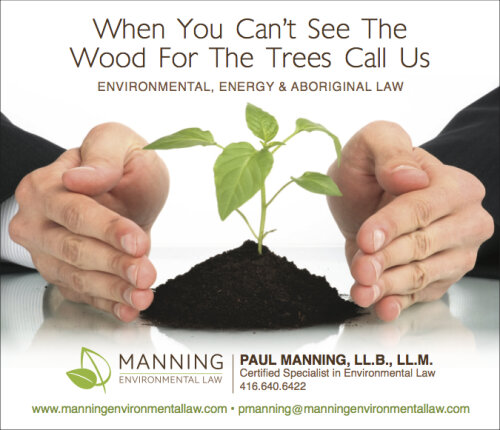Best Sustainable Finance Lawyers in Toronto
Share your needs with us, get contacted by law firms.
Free. Takes 2 min.
List of the best lawyers in Toronto, Canada
About Sustainable Finance Law in Toronto, Canada
Sustainable Finance in Toronto, Canada refers to financial services that consider environmental, social, and governance (ESG) factors when making investment decisions in the financial sector. This area of law encourages businesses and investors to support initiatives that contribute to economic growth while promoting positive social and environmental outcomes. Toronto, as Canada’s largest financial hub, plays a leading role in advancing sustainable finance practices. Municipal, provincial, and federal guidelines continue to shape how organizations address climate change, resource management, and social responsibility through their financial activities.
Why You May Need a Lawyer
The legal landscape around Sustainable Finance is constantly evolving. Here are some common situations where individuals or organizations might benefit from legal guidance:
- Structuring green bonds, sustainability-linked loans, or other ESG-related financial instruments
- Ensuring compliance with local, provincial, and federal disclosure requirements
- Advising on responsible investing and integrating ESG considerations into portfolio management
- Navigating the reporting requirements imposed by securities regulators and stock exchanges
- Responding to shareholder activism and ESG-related litigation risks
- Ensuring proper due diligence and managing risk in mergers and acquisitions involving sustainable businesses
- Guiding issuers and investors on the implications of Canada’s climate commitments and net-zero strategies
- Resolving disputes related to greenwashing allegations or misleading sustainability claims
Local Laws Overview
Toronto’s sustainable finance legal framework is shaped by multiple overlapping regimes, including federal acts, Ontario’s securities rules, and voluntary industry standards. Important aspects include:
- Disclosure Requirements: Public companies must disclose material risks and opportunities related to climate change and other ESG factors under guidelines from the Ontario Securities Commission and Canadian Securities Administrators.
- Sustainable Investment Regulations: Adoption of global frameworks such as the Task Force on Climate-Related Financial Disclosures (TCFD) is increasingly encouraged.
- Green Bonds and Loan Standards: The use of internationally recognized standards like the Green Bond Principles or Sustainability-Linked Loan Principles is growing in Toronto’s financial sector.
- Government Incentives: Federal and provincial governments offer programs and tax incentives for green infrastructure and sustainable projects.
- Anti-Greenwashing Enforcement: Regulatory bodies are increasing oversight to ensure truthful representation of sustainability claims in marketing and reporting.
Given the dynamic and complex nature of sustainable finance laws, legal advice can be crucial to navigate these requirements effectively.
Frequently Asked Questions
What is Sustainable Finance?
Sustainable Finance integrates environmental, social, and governance (ESG) considerations into financial decisions to support sustainable economic growth and development.
How is Sustainable Finance regulated in Toronto, Canada?
It is regulated through a combination of federal and provincial legislation, securities rules, and voluntary standards adopted by financial institutions and investors.
What is a green bond?
A green bond is a type of fixed-income instrument designed specifically to fund projects with environmental benefits, such as renewable energy or energy efficiency improvements.
Are ESG disclosures mandatory for companies in Toronto?
While there is growing pressure to provide ESG disclosures, some aspects are mandatory for issuers listed on Canadian stock exchanges and subject to local securities regulation.
What risks do investors face regarding greenwashing?
Investors face reputational, financial, and legal risks if sustainability claims made by companies or funds are misleading or unsubstantiated.
Does Canada have a national sustainable finance taxonomy?
Canada is in the process of developing standards and guidance for sustainable finance, but a formal taxonomy is still in development as of 2024.
What laws apply to sustainable loans and investments in Toronto?
Relevant laws include Ontario and federal securities regulations, anti-fraud statutes, and industry-specific standards or guidelines for sustainable products.
Can sustainable investment funds be marketed to retail investors?
Yes, but they must comply with standard disclosure, suitability, and labeling rules to protect investors from misleading claims.
How do I verify if a project or investment is truly sustainable?
You can look for independent third-party verification, adherence to recognized frameworks, and transparent public disclosures.
What should I do if I suspect greenwashing?
Seek legal advice immediately and consider reporting your concerns to the Ontario Securities Commission or the Competition Bureau.
Additional Resources
If you are seeking more information or support, the following organizations and resources can be useful:
- Ontario Securities Commission (OSC)
- Canadian Securities Administrators (CSA)
- Canada’s Sustainable Finance Action Council
- Responsible Investment Association (RIA) Canada
- Financial Consumer Agency of Canada (FCAC)
- Competition Bureau Canada
Next Steps
If you believe you need legal assistance in Sustainable Finance:
- Gather all relevant documentation about your project or investment
- List your specific questions and concerns
- Contact a law firm or practitioner in Toronto with experience in sustainable finance law
- Request an initial consultation to discuss your situation and clarify fees
- Stay informed of regulatory changes that may affect your business or investments
Working with a knowledgeable lawyer will help ensure you comply with all relevant regulations and manage the unique risks associated with Sustainable Finance in Toronto, Canada.
Lawzana helps you find the best lawyers and law firms in Toronto through a curated and pre-screened list of qualified legal professionals. Our platform offers rankings and detailed profiles of attorneys and law firms, allowing you to compare based on practice areas, including Sustainable Finance, experience, and client feedback.
Each profile includes a description of the firm's areas of practice, client reviews, team members and partners, year of establishment, spoken languages, office locations, contact information, social media presence, and any published articles or resources. Most firms on our platform speak English and are experienced in both local and international legal matters.
Get a quote from top-rated law firms in Toronto, Canada — quickly, securely, and without unnecessary hassle.
Disclaimer:
The information provided on this page is for general informational purposes only and does not constitute legal advice. While we strive to ensure the accuracy and relevance of the content, legal information may change over time, and interpretations of the law can vary. You should always consult with a qualified legal professional for advice specific to your situation.
We disclaim all liability for actions taken or not taken based on the content of this page. If you believe any information is incorrect or outdated, please contact us, and we will review and update it where appropriate.

















